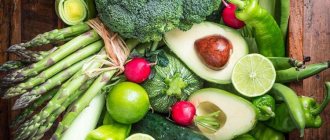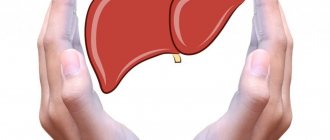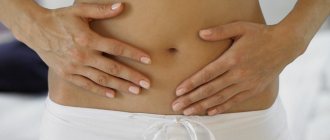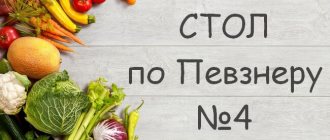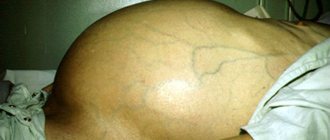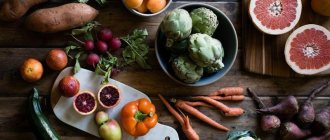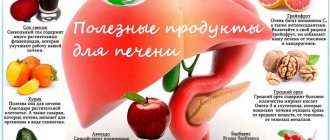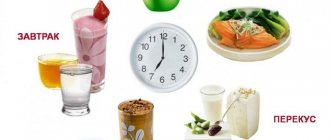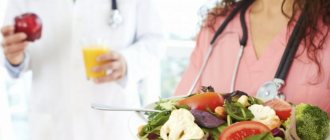To alleviate the patient’s condition and slow down the progression of the malignant process, it is recommended to adhere to a dietary diet.
Its main tasks are:
- normalization of food digestion;
- facilitating liver function;
- improving metabolic processes;
- preventing bile stagnation by regulating the frequency of food intake.
Taking into account the peculiarities of the course of the disease, as well as the rapid decrease in body weight, it is important to understand that nutrition should be balanced, not burden the liver and at the same time cover the energy needs of the body.
General rules
In the structure of primary malignant liver tumors, 82% are hepatocellular carcinoma (HCC), which develops directly from liver parenchyma cells. The main etiological factors of the disease are previous viral hepatitis B , C , toxic (alcoholic) hepatitis, liver cirrhosis and metabolic disorders (non-alcoholic fatty liver, diabetes mellitus ).
The tumor can occur in the form of individual nodes of various sizes, or affect the entire organ (diffuse form). In addition to the primary tumor of liver cells, secondary metastatic cancer , which is metastases to the liver of tumor cells of other organs - most often tumors of the intestine, stomach and esophagus, pancreas, less often - tumors of the lungs, prostate, and breast. Both primary and secondary liver cancer manifest with nonspecific symptoms for cancer.
In the early stages - discomfort in the right hypochondrium, dyspeptic disorders , fatigue, malaise, lack of appetite, weight loss. Later, the symptoms of obstructive jaundice develop - yellowness of the skin, sclera, itching of the skin, fever, anemia. The survival prognosis for such patients is generally extremely disappointing and depends significantly on the stage of the disease.
The main treatment method is liver transplantation/resection; however, the most important indications for surgical treatment are the size, number and location of tumors, metastatic lesions of regional lymph nodes, and ingrowth into great vessels. Less effective are methods of destroying liver tumors by installing various chemicals ( acetic acid , ethanol) and cytostatics directly into the tumor.
Systemic chemotherapy as an independent method is used only in inoperable cases in the presence of sites in lymph nodes and distant organs (drugs are administered into the hepatic artery), however, the effectiveness of these methods is low without prolonging the life of patients. Radiation therapy is ineffective for liver cancer and is not prescribed.
A diet for liver cancer is part of a set of mandatory measures and allows you to slow down the progression of liver cancer and maintain the patient’s condition at a satisfactory level. Properly organized nutrition for liver cancer is aimed at adequate intake of food nutrients into the body, providing the plastic and energy needs of the body, improving metabolic processes, sparing the liver, normalizing the process of food digestion, eliminating bile stagnation, and supporting the immune system . Table No. 5 can be taken as the basis for the nutrition of such patients, with its correction if necessary.
Main characteristics of the diet
- Nutrition should be as natural as possible, since in case of liver tumors, its detoxification function is sharply reduced and is not able to neutralize carcinogenic substances coming from food (food additives, dyes, stabilizers, nitrates, GMOs), therefore it is necessary to carefully select products, and in order to reduce the content of nitrates — practice peeling and soaking vegetables/fruits.
- Food should be easy and well digestible.
- In the presence of tumor-associated weight loss, the diet should contain high-calorie foods with a high protein component (dietary meat, cottage cheese, cheese, lean fish, eggs, fermented milk products) at the rate of 1.5 g/kg body weight/day.
- In case of absence/poor appetite, foods that increase appetite are included in the diet - caviar, sauerkraut, cranberries, pickles, lemons.
- Dishes are prepared only boiled/steamed. If necessary, food can be pureed or pureed.
- The content of animal fats is limited/excluded.
- Limit the amount of table salt to 6-8 g/day, refined sugar.
- Sufficient intake of free fluid into the body is 1.5-2.0 l/day in the form of herbal teas, dried fruit decoctions, diluted freshly prepared juices without sugar, clean water.
A diet for liver cell oncology involves a complete abstinence from eating smoked meats, rich broths, any fried foods and fatty meats, mayonnaise, margarine, and fatty fish.
It is prohibited to include marinades, sausages, canned food, white bread, baked goods, hot spices and dishes, sweets, sugar and sweeteners, chocolate, and any alcoholic beverages in the diet, since the liver affected by metastases is not capable of producing the alcohol-neutralizing enzyme alcohol dehydrogenase . It is also important to exclude carbonated drinks, coffee and strong tea from your diet.
In the later stages of the disease - stage 4 (IVA, IVB), in the absence of appetite and increasing exhaustion, patients are transferred to artificial nutrition (parenteral) and simultaneously/followed by enteral nutrition through a tube.
The basis of parenteral nutrition are energy donors (carbohydrate solutions/fat emulsions, and protein nutrition, complex solutions of amino acids), which are introduced into the patient’s vascular bed according to special schemes. For tube diets, special food is used: inpitan , enpit , composite , ovolact , produced by industry, as well as specialized baby food, for example, “Nutritsia”, which can be purchased in specialized baby food departments. These mixtures have a well-balanced composition and are enriched with a complex of vitamins/microelements.
Basic principles
A cancer patient needs to eat according to the following recommendations:
- Meals should begin with raw foods, after which you can take on boiled and stewed foods;
- Overeating should be avoided. Lunch should end without feeling heavy in the stomach;
- You need to eat slowly, carefully chopping food with your teeth. This is necessary to facilitate digestion by thoroughly soaking the food bolus with saliva and crushing solid pieces;
- Be sure to drink plenty of fluids, which is necessary to prevent dehydration;
- The frequency of meals should not be less than five times a day. Regular intake of a small amount of food into the digestive tract ensures the outflow of bile into the intestines, thereby preventing its stagnation. In addition, it is possible to improve the patient’s appetite;
- the diet should be enriched with protein foods;
- salt is limited to 8 g/day;
- alcohol is prohibited in any form, even low-alcohol drinks;
- Steamed dishes are healthy. The products can also be boiled or baked. Fried foods are prohibited;
- dishes - warm, since cold and very hot have a detrimental effect on digestion and the mucous membrane of the gastrointestinal tract.
Authorized Products
Diet for liver cancer includes:
- Day-old/dried wholemeal wheat flour bread, dry biscuits.
- Vegetarian soups with the addition of cereals (rice, oatmeal) and pasta made from premium flour without dressing.
- Lean varieties of beef, veal, turkey/chicken (without skin), rabbit, boiled/steamed in pieces or chopped (meatballs, meatballs, cutlets, dumplings, soufflé).
- Low-fat types of sea/river fish (perch, hake, pike, capelin, carp, cod, pike perch) steamed, boiled or baked).
- Raw/boiled grated vegetables: potatoes, pumpkin, zucchini, carrots, cauliflower, green peas, garden herbs, beets. The list of vegetables is reduced if they are poorly tolerated.
- Low-fat dairy/fermented milk products (cottage cheese, yogurt, kefir, low-fat cheese).
- Chicken eggs in the form of baked/steamed omelette or soft-boiled.
- Semi-liquid porridge made from oatmeal, buckwheat in water, white rice, boiled pasta.
- Refined vegetable oils, unsalted butter - in ready-made dishes.
- Ripe non-acidic raw/baked fruits/berries in pureed form, honey, dried fruits, marmalade, marshmallows, jam.
- Freshly squeezed fruit juices diluted with water, rosehip infusion, still table water, weak tea with lemon, compotes.
Table of permitted products
| Proteins, g | Fats, g | Carbohydrates, g | Calories, kcal | |
Vegetables and greens | ||||
| zucchini | 0,6 | 0,3 | 4,6 | 24 |
| broccoli | 3,0 | 0,4 | 5,2 | 28 |
| cauliflower | 2,5 | 0,3 | 5,4 | 30 |
| potato | 2,0 | 0,4 | 18,1 | 80 |
| carrot | 1,3 | 0,1 | 6,9 | 32 |
| cucumbers | 0,8 | 0,1 | 2,8 | 15 |
| tomatoes | 0,6 | 0,2 | 4,2 | 20 |
| pumpkin | 1,3 | 0,3 | 7,7 | 28 |
Fruits | ||||
| apples | 0,4 | 0,4 | 9,8 | 47 |
Nuts and dried fruits | ||||
| dried apricots | 5,2 | 0,3 | 51,0 | 215 |
| dried apricots | 5,0 | 0,4 | 50,6 | 213 |
| prunes | 2,3 | 0,7 | 57,5 | 231 |
Cereals and porridges | ||||
| buckwheat (kernel) | 12,6 | 3,3 | 62,1 | 313 |
| semolina | 10,3 | 1,0 | 73,3 | 328 |
| oat groats | 12,3 | 6,1 | 59,5 | 342 |
| white rice | 6,7 | 0,7 | 78,9 | 344 |
Confectionery | ||||
| jam | 0,3 | 0,2 | 63,0 | 263 |
| jelly | 2,7 | 0,0 | 17,9 | 79 |
| marshmallows | 0,8 | 0,0 | 78,5 | 304 |
| fruit and berry marmalade | 0,4 | 0,0 | 76,6 | 293 |
| paste | 0,5 | 0,0 | 80,8 | 310 |
| Maria cookies | 8,7 | 8,8 | 70,9 | 400 |
Raw materials and seasonings | ||||
| honey | 0,8 | 0,0 | 81,5 | 329 |
Dairy | ||||
| kefir 1.5% | 3,3 | 1,5 | 3,6 | 41 |
| curdled milk 1% | 3,0 | 1,0 | 4,1 | 40 |
| acidophilus 1% | 3,0 | 1,0 | 4,0 | 40 |
Cheeses and cottage cheese | ||||
| cottage cheese 1% | 16,3 | 1,0 | 1,3 | 79 |
| cottage cheese 1.8% (low-fat) | 18,0 | 1,8 | 3,3 | 101 |
Meat products | ||||
| boiled beef | 25,8 | 16,8 | 0,0 | 254 |
| boiled veal | 30,7 | 0,9 | 0,0 | 131 |
| rabbit | 21,0 | 8,0 | 0,0 | 156 |
Bird | ||||
| boiled chicken breast | 29,8 | 1,8 | 0,5 | 137 |
| boiled turkey fillet | 25,0 | 1,0 | — | 130 |
Eggs | ||||
| chicken eggs | 12,7 | 10,9 | 0,7 | 157 |
Fish and seafood | ||||
| salmon caviar granular | 32,0 | 15,0 | 0,0 | 263 |
| flounder | 16,5 | 1,8 | 0,0 | 83 |
| pollock | 15,9 | 0,9 | 0,0 | 72 |
| blue whiting | 16,1 | 0,9 | — | 72 |
| cod | 17,7 | 0,7 | — | 78 |
| hake | 16,6 | 2,2 | 0,0 | 86 |
| pike | 18,4 | 0,8 | — | 82 |
Oils and fats | ||||
| butter | 0,5 | 82,5 | 0,8 | 748 |
| sunflower oil | 0,0 | 99,9 | 0,0 | 899 |
| ghee | 0,2 | 99,0 | 0,0 | 892 |
Non-alcoholic drinks | ||||
| water | 0,0 | 0,0 | 0,0 | — |
| mineral water | 0,0 | 0,0 | 0,0 | — |
| black tea with milk and sugar | 0,7 | 0,8 | 8,2 | 43 |
Juices and compotes | ||||
| apricot juice | 0,9 | 0,1 | 9,0 | 38 |
| carrot juice | 1,1 | 0,1 | 6,4 | 28 |
| peach juice | 0,9 | 0,1 | 9,5 | 40 |
| pumpkin juice | 0,0 | 0,0 | 9,0 | 38 |
| rose hip juice | 0,1 | 0,0 | 17,6 | 70 |
| * data is per 100 g of product | ||||
Menu for a week for liver cancer
To correctly create a menu, you must follow medical recommendations:
- gentle cooking method;
- the use of beef, veal or chicken, from fish - perch or pike perch;
- eggs should not be on the daily menu, at least one every other day;
- the maximum volume of butter is 60 g;
- milk should have minimal fat content;
- store-bought sausages should be excluded from the diet due to the high content of additives. You can prepare them yourself;
- cakes should be replaced with marmalade or marshmallows;
- It is advisable to include seaweed in your diet.
Here is an example of a weekly menu. Biscuits, fruit salad, kefir, green tea, vegetable juice, baked fruit and rosehip decoction are suitable for second breakfast, afternoon snack and snack before bed. We will describe in detail the dishes for morning reception, lunch and dinner:
Monday:
vegetable salad, noodles;- chicken broth, mashed potatoes, steam cutlet;
- wheat porridge, baked fish.
Tuesday:
- oatmeal, vegetable salad;
- dietary borscht, cabbage rolls;
- cottage cheese casserole.
Wednesday:
- buckwheat, chicken sausage;
- vegetable soup, wheat porridge with meat;
- pumpkin casserole.
Thursday:
- lazy dumplings;
- soup with meatballs, pilaf;
- mashed potatoes, baked fish.
Friday:
- vermicelli, vegetable salad;
- chicken broth, cabbage rolls;
- cottage cheese with dried fruits.
Saturday:
- boiled potatoes, meat;
- dietary borscht, buckwheat with cutlet;
- vegetable stew.
Sunday:
- semolina porridge, fruits;
- vegetable soup with meatballs, macaroni and cheese;
- steam omelette, squash caviar.
Fully or partially limited products
The diet of patients with liver cancer includes the following exceptions:
- Fatty types of red meat, fatty dairy products, meat, poultry (goose and duck), fatty fish, sausages, canned meat/fish, cooking and animal fats.
- Any fried food, including fried meat/fish, pies, pancakes, pancakes, cheesecakes.
- Rye bread, pastries, any kind of dough, easily digestible carbohydrates (chocolate, cream products, sweets, cakes, ice cream).
- First courses in concentrated meat/fish broth, borscht, cold soups (okroshka).
- Some types of cereal products (corn, pearl barley, millet, barley groats).
- Spicy dishes and spices, seasonings, herbs, as well as various kinds of sauces, pickles, marinades.
- Vegetables with coarse fiber (radish, turnip, rutabaga, white cabbage, eggplant, radish), mushrooms, legumes, garlic and onions.
- Carbonated drinks, black coffee, cocoa, grape juice, alcoholic beverages.
Table of prohibited products
| Proteins, g | Fats, g | Carbohydrates, g | Calories, kcal | |
Vegetables and greens | ||||
| canned vegetables | 1,5 | 0,2 | 5,5 | 30 |
| eggplant | 1,2 | 0,1 | 4,5 | 24 |
| swede | 1,2 | 0,1 | 7,7 | 37 |
| peas | 6,0 | 0,0 | 9,0 | 60 |
| cabbage | 1,8 | 0,1 | 4,7 | 27 |
| bulb onions | 1,4 | 0,0 | 10,4 | 41 |
| chickpeas | 19,0 | 6,0 | 61,0 | 364 |
| salad pepper | 1,3 | 0,0 | 5,3 | 27 |
| parsley | 3,7 | 0,4 | 7,6 | 47 |
| radish | 1,2 | 0,1 | 3,4 | 19 |
| white radish | 1,4 | 0,0 | 4,1 | 21 |
| dill | 2,5 | 0,5 | 6,3 | 38 |
| beans | 7,8 | 0,5 | 21,5 | 123 |
| horseradish | 3,2 | 0,4 | 10,5 | 56 |
| spinach | 2,9 | 0,3 | 2,0 | 22 |
| sorrel | 1,5 | 0,3 | 2,9 | 19 |
Fruits | ||||
| bananas | 1,5 | 0,2 | 21,8 | 95 |
Berries | ||||
| grape | 0,6 | 0,2 | 16,8 | 65 |
Mushrooms | ||||
| mushrooms | 3,5 | 2,0 | 2,5 | 30 |
| marinated mushrooms | 2,2 | 0,4 | 0,0 | 20 |
Nuts and dried fruits | ||||
| nuts | 15,0 | 40,0 | 20,0 | 500 |
| raisin | 2,9 | 0,6 | 66,0 | 264 |
| seeds | 22,6 | 49,4 | 4,1 | 567 |
| dates | 2,5 | 0,5 | 69,2 | 274 |
Cereals and porridges | ||||
| corn grits | 8,3 | 1,2 | 75,0 | 337 |
| millet cereal | 11,5 | 3,3 | 69,3 | 348 |
| barley grits | 10,4 | 1,3 | 66,3 | 324 |
Flour and pasta | ||||
| pasta | 10,4 | 1,1 | 69,7 | 337 |
| vareniki | 7,6 | 2,3 | 18,7 | 155 |
| dumplings | 11,9 | 12,4 | 29,0 | 275 |
Bakery products | ||||
| buns | 7,9 | 9,4 | 55,5 | 339 |
| Rye bread | 6,6 | 1,2 | 34,2 | 165 |
Confectionery | ||||
| pastry cream | 0,2 | 26,0 | 16,5 | 300 |
| shortbread dough | 6,5 | 21,6 | 49,9 | 403 |
Ice cream | ||||
| ice cream | 3,7 | 6,9 | 22,1 | 189 |
Chocolate | ||||
| chocolate | 5,4 | 35,3 | 56,5 | 544 |
Raw materials and seasonings | ||||
| mustard | 5,7 | 6,4 | 22,0 | 162 |
| mayonnaise | 2,4 | 67,0 | 3,9 | 627 |
| sugar | 0,0 | 0,0 | 99,7 | 398 |
Dairy | ||||
| milk 4.5% | 3,1 | 4,5 | 4,7 | 72 |
| cream 35% (fat) | 2,5 | 35,0 | 3,0 | 337 |
| whipped cream | 3,2 | 22,2 | 12,5 | 257 |
| sour cream 30% | 2,4 | 30,0 | 3,1 | 294 |
Cheeses and cottage cheese | ||||
| parmesan cheese | 33,0 | 28,0 | 0,0 | 392 |
Meat products | ||||
| fatty pork | 11,4 | 49,3 | 0,0 | 489 |
| salo | 2,4 | 89,0 | 0,0 | 797 |
| bacon | 23,0 | 45,0 | 0,0 | 500 |
Sausages | ||||
| smoked sausage | 9,9 | 63,2 | 0,3 | 608 |
Bird | ||||
| smoked chicken | 27,5 | 8,2 | 0,0 | 184 |
| duck | 16,5 | 61,2 | 0,0 | 346 |
| smoked duck | 19,0 | 28,4 | 0,0 | 337 |
| goose | 16,1 | 33,3 | 0,0 | 364 |
Fish and seafood | ||||
| smoked fish | 26,8 | 9,9 | 0,0 | 196 |
| black caviar | 28,0 | 9,7 | 0,0 | 203 |
| salmon caviar granular | 32,0 | 15,0 | 0,0 | 263 |
| salmon | 19,8 | 6,3 | 0,0 | 142 |
| canned fish | 17,5 | 2,0 | 0,0 | 88 |
| salmon | 21,6 | 6,0 | — | 140 |
| trout | 19,2 | 2,1 | — | 97 |
Oils and fats | ||||
| animal fat | 0,0 | 99,7 | 0,0 | 897 |
| cooking fat | 0,0 | 99,7 | 0,0 | 897 |
Alcoholic drinks | ||||
| dry red wine | 0,2 | 0,0 | 0,3 | 68 |
| vodka | 0,0 | 0,0 | 0,1 | 235 |
| beer | 0,3 | 0,0 | 4,6 | 42 |
Non-alcoholic drinks | ||||
| soda water | 0,0 | 0,0 | 0,0 | — |
| cola | 0,0 | 0,0 | 10,4 | 42 |
| instant coffee dry | 15,0 | 3,5 | 0,0 | 94 |
| sprite | 0,1 | 0,0 | 7,0 | 29 |
Juices and compotes | ||||
| grape juice | 0,3 | 0,0 | 14,0 | 54 |
| * data is per 100 g of product | ||||
Prohibited
The liver is directly involved not only in the process of filtering blood, but also in the process of digestion. When a malignant neoplasm develops, increased stress on the affected organ should not be allowed, so the diet should not contain “heavy” foods that are difficult to digest by the body.
Why can our articles be trusted?
We make health information clear, accessible and relevant.
- All articles are checked by practicing doctors.
- We take scientific literature and the latest research as a basis.
- We publish detailed articles that answer all questions.
The following are necessarily excluded from use:
- sweeteners and sugar;
- meat and fish products of fatty varieties;
- starch-containing products;
- preservation and pickling;
- smoked meats and sausages;
- flavor enhancers, flavors and dyes;
- butter ;
- canned food;
- condensed milk;
- carbonated drinks;
- pastries , white bread;
- sweets;
- cocoa and coffee.
Prognosis for liver cancer
Liver cancer is one of the most dangerous malignant tumors.
Of course, patients with cancer are prohibited from drinking alcoholic beverages, regardless of strength. Since even a minimal amount of ethanol has a destructive effect on the cellular structure of the liver.
This is explained by the fact that the ingestion of alcohol into the body promotes the production of a special enzyme - alcohol dehydrogenase. However, when a tumor develops, this does not happen, and alcohol begins to destroy liver tissue.
Reviews and results
Therapeutic nutrition for liver cancer, according to patient reviews, allows you to maintain the general condition of the body at a satisfactory level and spares the liver. Unfortunately, patients with liver cancer follow a diet for life, since expanding the diet causes deterioration.
- “... My father was diagnosed with pancreatic cancer, and at the last examination they discovered metastases to the liver. Doctors said that he was inoperable, treatment was prescribed and he was discharged home. The condition is moderate, poor appetite, weakness, frequent pain. Is on a diet. I steam everything for him in pureed form, he eats without pleasure, but we are glad that he eats himself at all. The stool is regular and normal. He’s still taking care of himself, but the hospital told me to prepare for the worst”;
- “... Diagnosis: stage 3 liver cancer. Severe pain. We administer analgesics every 3 hours, the mother is very heavy, she eats on her own, but very poorly and little, and has problems with bowel movements. Marked weight loss. In addition to dietary nutrition, we buy special medications and have agreed with the doctor to inject them into the vascular bed once a day. We don’t know how much longer she can stand.”
